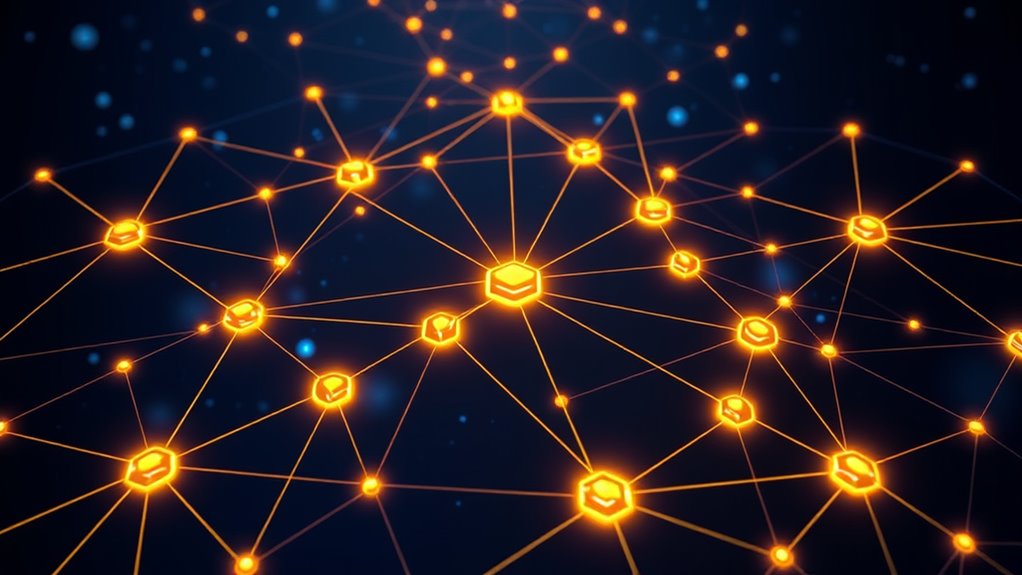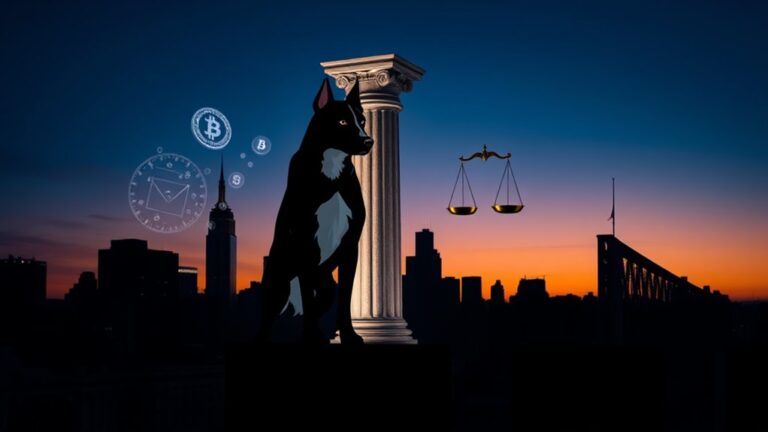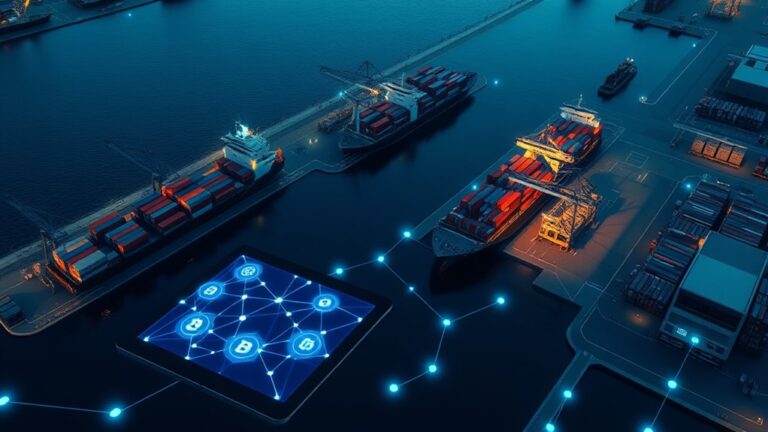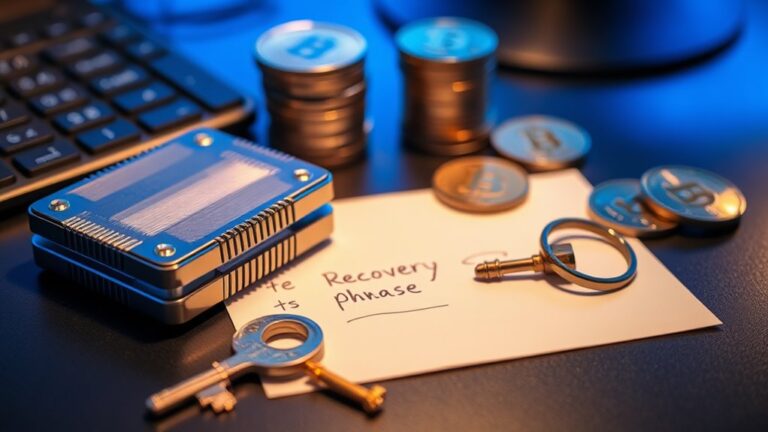Decentralization Explained
Note: This post may contain affiliate links, and we may earn a commission (with No additional cost for you) if you purchase via our link. See our disclosure for more info. The gold and crypto world is constantly changing. This is not financial, investment, legal, or professional advice. So, please verify the information on the gold and cryptocurrency provider’s websites.
Decentralization is all about spreading the power around. Forget waiting for top bosses to make every little decision. Instead, lower-level employees handle daily operations. This can mean a faster response to customer issues, which is great. But hold up! It's not all sunshine and rainbows. Coordination can get tricky, and departments might clash like cats and dogs. Still, the benefits can be worthwhile. Want to explore how this plays out in various settings? There's more to uncover.
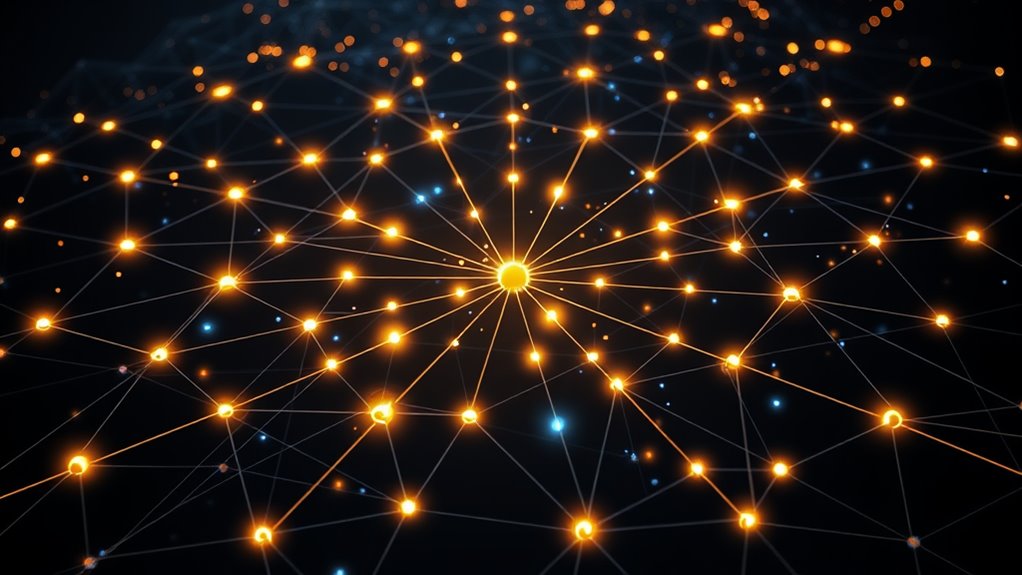
Decentralization is one of those buzzwords that sounds fancy but is pretty straightforward once you break it down. It's all about giving power to lower levels of an organization. Imagine this: top management can finally kick back and focus on the big stuff—like strategic decisions that could make or break a company—while the little guys handle day-to-day operations. It's a win-win, right?
Decentralization empowers lower levels of an organization, letting top management focus on big-picture strategy while daily operations run smoothly.
The beauty of decentralization lies in its systematic distribution of decision-making power. Departments or regions get their own say-so. It's like having a mini-government in a company. Want to make an on-the-spot decision? Go ahead! No need to wait for the big boss to sign off on every little thing. This spurs rapid decision-making and gets things moving quickly. This decentralised structure allows for effective handling of customer problems, complaints, and requirements. Additionally, it's crucial to ensure that JavaScript is enabled for proper website operation, as this can significantly enhance communication and efficiency.
But that's not all. Decentralization helps develop managerial skills. Suddenly, the folks at lower levels are solving problems and taking responsibility. Talk about empowerment! It even fosters a little friendly competition between departments, which, let's be honest, can lead to some impressive productivity boosts.
Plus, it eases the burden on top management—no more micromanaging every tiny detail. They can focus on the long-term goals without drowning in daily chaos. In financial systems, decentralization through crypto remittances can drastically reduce transaction costs by eliminating intermediaries while increasing accessibility for underserved populations.
However, it's not all sunshine and rainbows. As great as decentralization sounds, coordination can get messy. Different units might have their own agendas, leading to conflicts. And let's not forget the financial strain. More autonomy means more resources to manage.
Beyond the business world, decentralization pops up in politics, technology, and even energy management. Think about federal systems that empower local leaders or decentralized energy systems like solar microgrids. It's everywhere, and while it can be fantastic, challenges lurk in the shadows.
Frequently Asked Questions
How Does Decentralization Impact Data Privacy and Security?
Decentralization shakes up data privacy and security big time. No more single points of failure. That's a win.
But wait, it's not all sunshine and rainbows. Sure, data gets split and encrypted, keeping nosy folks at bay.
However, managing all that chaos? It's a headache. Governance is tricky, and scalability? Good luck with that.
What Are the Challenges of Implementing Decentralization?
Implementing decentralization? It's a wild ride.
First off, there's no clear boss. Good luck resolving conflicts!
Accountability? Ha! Everyone's pointing fingers.
Then there's the tech side—scalability issues and high costs make participation feel like a luxury.
And let's not forget the legal mess; jurisdictions overlapping like a bad puzzle.
All this while trying to build trust with diverse groups.
It's like herding cats, but the cats have different agendas. Good luck!
Can Decentralization Coexist With Traditional Centralized Systems?
Decentralization and traditional centralized systems can absolutely coexist. Think of it like mixing oil and water; it's messy but doable.
Hybrid models pop up everywhere, merging the rigidity of central control with the freedom of decentralization. But let's be real—this blend isn't always smooth. Conflicts arise. Who gets to call the shots?
Still, the potential for innovation and flexibility keeps the discussion alive. It's complicated, but hey, that's the world we live in.
What Industries Benefit the Most From Decentralization?
Decentralization is shaking things up.
Financial services? It's a game-changer—think faster transactions and no middlemen.
Healthcare isn't left behind either; secure patient data management is the new normal.
Education? Tamper-proof diplomas, thank you very much.
Supply chains are more transparent, so goodbye, counterfeit products.
Even tech is getting a makeover with better IoT security.
In short, industries are reaping rewards, while traditional systems scramble to keep up.
How Does Decentralization Affect Decision-Making Processes?
Decentralization shakes up decision-making like a snow globe. No more waiting for the big boss's thumbs-up. Teams get to act fast, using local smarts to tackle issues head-on.
Innovation spikes, too. Frontline workers, empowered and enthusiastic, can pitch ideas without the usual red tape. It's like giving them a megaphone in a crowded room. They feel ownership, which boosts morale.
Bottom line? Decisions get made quicker and often lead to better outcomes.

